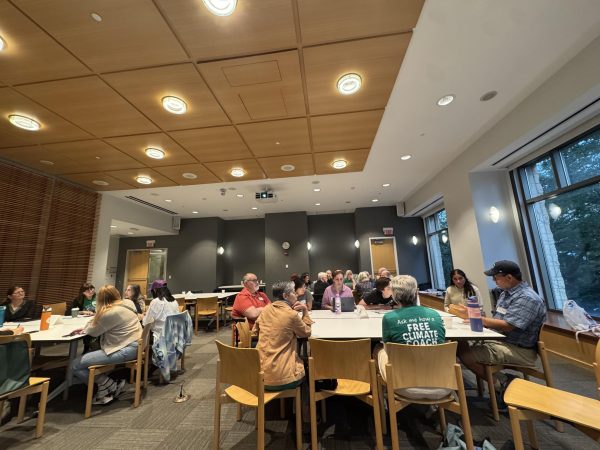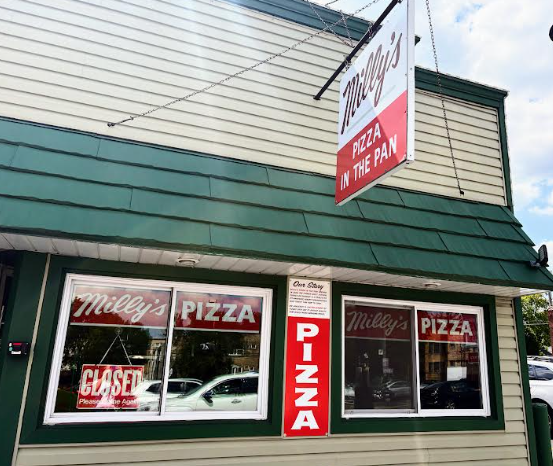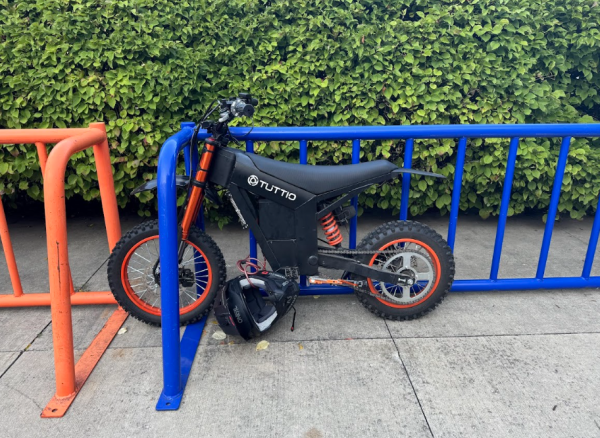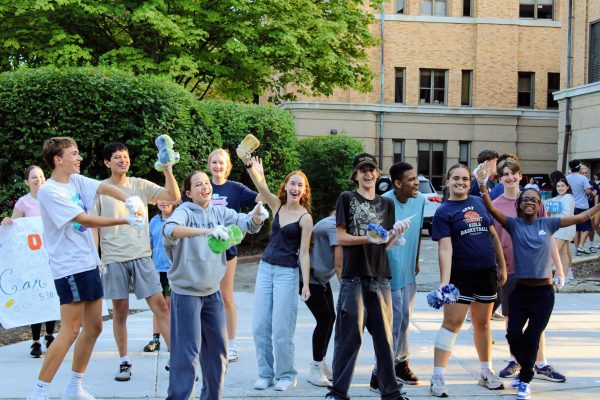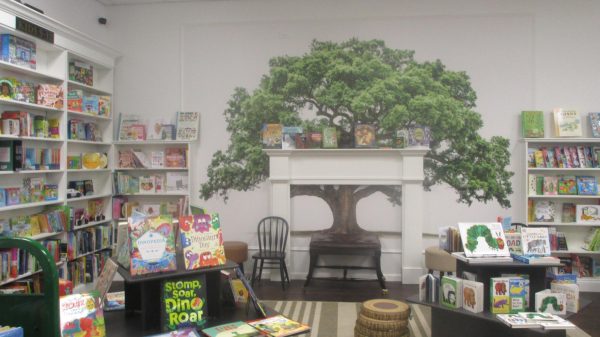Tabula commemerates the unconventional year
A joint Tabula class, with the writers, designers, and photographers
When the COVID-19 pandemic began its reign of terror across the country, everything came to a pause. Classes switched to online, and clubs, sports, and other activities were postponed with no discernable fate. Among the several questions that circulated through the OPRF community, one burning question eventually arose: How will we get our yearbooks? Will there even be a yearbook?
It seems we have come full circle, because now we are asking that question again. Except this time, school has been either closed or abnormal for a semester and a half instead of two months.
Tabula co-advisor Dan Ganschow acknowledges this sentiment. The 2020 Tabula staff was able to hit their final deadline in March, right before school shut down, but Ganschow said that their biggest issue was distribution and planning for the next school year.
Given the lives we have lost and the adaptations we have had to make, it is difficult for anyone to paint a complete picture of what we have lived through during this pandemic. But Tabula’s goal is to do just that. “It (Tabula) really is a book that should depict the entire year and the lives of all the students … it’s our job to tell about the school year exactly the way it happened – it’s not necessarily our job to paint a pretty picture,” Ganschow said.
Junior Tim Mellman, Tabula’s design editor, sees Tabula in the same light – a “memory box” of this unique era for us students to “look back at in 20 years and say, ‘I remember that … that was the really difficult year.’”
“This is a challenging year for everybody, and yearbook is not excluded from that challenge,” said co-advisor Valerie White. “Most of the photos that we have are going to look a lot different this year – we’re going to have a lot of screenshots, a lot of Zoom calls, but that’s an accurate representation of this year.” Adam Fleischer, the visual image coordinator for Tabula, has faced more specific challenges getting the coverage he needs.
“I’m normally a fully remote student,” Fleischer said. “But I had to go into the building to shoot academics … I had to contact teachers beforehand to make sure they weren’t over capacity just so I could go in and take three photos.”
A large part of producing a yearbook each year is communication – both in the yearbook room and in the community. “In a normal year, we would be in two classrooms, and it would be easy to go from the writing room to photo and design and talk about a(n) … issue and get it fixed within five minutes,” said editor Erma Aumann. “It’s difficult when you can’t see people working.”
“You’re not going to your teachers to get interviews … and you aren’t meeting new people,” Aumann said. Communicating with new groups and initiatives to cover in the community is crucial for Tabula, but Aumann said most Tabula staff and editors are at school remotely.
Tabula’s mission, however, is to get as much coverage as possible in any given school year. To accommodate for the circumstances, they are pushing back deadlines and delaying distribution until summer. Important senior year milestones like prom and graduation will be featured at the beginning of next year’s yearbook. Graduating seniors will be able to purchase next year’s yearbook next spring, Mellman said.
Sections will also be added this year focusing on community activism and the ramifications of the pandemic. “We (want to) show what students are doing outside of school to represent us, ourselves, and our community, since this has been such an unorthodox school year,” White said.

